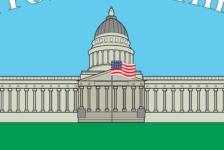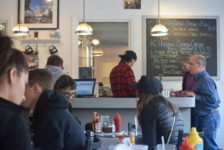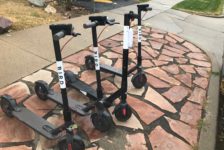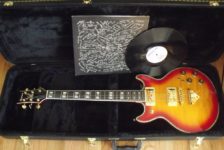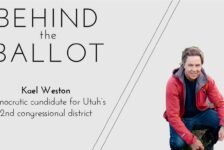
Utah has made substantial changes in the past 12 years to make alcohol more accessible, in hopes that it will attract tourism and change the image of the state. Photos by Alex Farrell
From alcohol that is readily available, to difficult to find and to somewhere in between, Utah’s liquor laws are frequently changing.
Some point the finger of the frequent change of state liquor laws toward the cultural influences of The Church of Jesus Christ of Latter-day Saints—Utah’s primary religion.
Brigham Young, president of the church from 1847 to 1877, owned and operated multiple whiskey distilleries. Furthermore, Young founded the Zion Cooperative Mercantile Institute, where alcohol was sold.
Utah voted back and forth during prohibition. It first voted against supporting prohibition and then voted for it years later. Finally, in 1933, Utah cast the pivotal vote to end prohibition in the United States.
Many people are still unfamiliar with Utah’s liquor laws.
“I was surprised how accessible alcohol was in such a religious state,” said Justin Willhoite, first-year geology major.

A wall of “Utah Beer”: the kind that is found in grocery stores is 3.2 percent alcohol.
The Utah Department of Alcoholic Beverage Control (UDABC) has regulated the sale of alcoholic beverages since 1935, two years after the end of prohibition. There are only 18 states left that maintain control of alcoholic beverages.
In recent history, two substantial changes have occurred in Utah’s liquor laws. First, the state relaxed enforcement during the 2002 Winter Olympic Games after the Olympic committee complained. Second, while Jon Huntsman was governor of Utah from 2002 to 2009, he said that if liquor laws were less restrictive it would help with tourism, business and Utah’s overall image.
Even though Utah has made strides to normalize its alcohol laws, some people still want less restriction. However, Utah is not the only state with unusual liquor laws. There are many others that have restrictions that raise problems with the public.
There are about 20 different types of licenses available for businesses to serve alcohol in Utah, all of which have different costs and requirements necessary to obtain them. One requirement is that there must be a specific percentage of food sold to acquire licenses. There are also restrictions on hours, population and location of the business, according to the UDABC.
Many problems persist, according to some business attempting to navigate these laws.

The Cheesecake Factory is located in downtown Salt Lake at City Creek mall. As in many other institutions that serve alcoholic beverages, a wall known as the “Zion Curtain” blocks patrons from servers mixing alcoholic drinks.
“These laws create problems for guests staying at the hotel,” said Robert Parise, supervisor at Spencer’s Steakhouse at the Hilton Hotel.
Parise said the biggest issue is that guests aren’t allowed to leave the restaurant with an alcoholic beverage, even though the restaurant is located inside the hotel. Additionally, if all guests are under 21 years old, they aren’t allowed to have lunch or dinner at the restaurant at all—even though it’s primarily a food establishment.
“This drives business away,” Parise said. “Guests who don’t understand Utah’s liquor laws leave bad reviews on websites such as Yelp.”
Other potentially confusing laws include the Zion Curtain. This law restricts restaurants from mixing alcohol in front of guests who order them. There must be a wall or barrier up so people can’t see the alcohol being prepared, in hopes of stopping excessive drinking.
Utah restaurants require guests to order food with their beverages to prevent them from having more than two drinks at a time. Some patrons are also confused when establishments can serve beer but not alcohol at different hours of the day. In order to prevent overconsumption, “happy hours” are not allowed in most Utah establishments.
The amount of alcohol that businesses are allowed to serve in beer can make some people angry. Any beer that is above four percent alcohol by volume is considered liquor and has restrictions on where it can be served.
Some visitors to Utah might find the hours of the liquor stores strange, as well. All state liquor stores are closed Sundays and holidays. Not to mention, the liquor stores shut down whenever political voting begins.
Alcoholic beverages can only have 1.5 fluid ounces of primary liquor. Secondary alcohol can be added but can’t exceed 2.5 fluid ounces.
Many stores and restaurants will not come to Utah because owners feel the restrictions impede their chances of success.

Bar X is a popular bar located in downtown Salt Lake. In recent years, a significant number of new bars have opened up downtown.
Some of these laws also affect Westminsters students. Ted Voulgaris, psychology major, recalled when his parents were visiting from out of state.
“We tried a couple different places to have lunch downtown but were turned away because I wasn’t of age,” he said.
Voulgaris said his parents were confused because each location they visited was a restaurant.
“When I finally did turn 21, it was a hassle having to drive to the liquor store to buy high percentage beer when a gas station was right down the street,” he said.
In many legislative sessions, representatives introduce bills to reform Utah’s liquor laws. One of the current topics is the need for permits to serve alcohol at special events.
Last year, there was a debate about whether Snowbird’s Oktoberfest could serve alcohol. Utah ended up allowing special permit passes to events, making alcohol more accessible, according to the UDABC.
Whether people agree with Utah’s liquor laws, the truth is that Utah has made changes in the past 12 years to make alcohol more accessible to everyone.
Generally, people are able to navigate Utah’s alcohol system and enjoy a beer or cocktail. However, there are times that frustrate people, and this is especially true with people new to the state.


